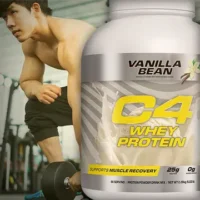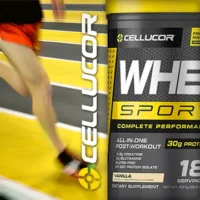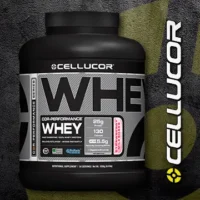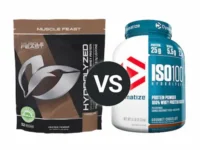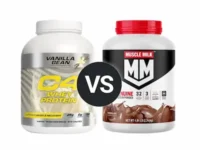Knowledge BaseYou're Questions Answered
What's the difference between pre workout and protein powder?
Pre-workout supplements and protein powders serve different purposes and contain distinct ingredients tailored to their specific functions in exercise and recovery.
Pre-workout supplements are designed to enhance athletic performance and energy levels before exercise. They typically contain a blend of stimulants like caffeine, amino acids such as beta-alanine and citrulline, and sometimes creatine, which help increase energy, improve endurance, and enhance focus during workouts1. These supplements are intended to be taken shortly before exercise to maximize their effect on performance.
Protein powders, on the other hand, are primarily focused on recovery and muscle building. They provide a high concentration of protein, which is essential for muscle repair and growth after exercise. Protein powders often come from sources like whey, casein, soy, or peas and are used to supplement daily protein intake, particularly after workouts to aid in muscle recovery and synthesis2. Unlike pre-workouts, protein powders do not typically contain stimulants.
While both pre-workout supplements and protein powders can be beneficial depending on your fitness goals, they are used at different times and for different reasons. Pre-workouts boost energy and performance before exercise, while protein powders help with muscle recovery after physical activity. It's also important to note that because pre-workouts contain stimulants, they should be used cautiously, especially by those sensitive to ingredients like caffeine3.
- Harty, P. S., Zabriskie, H. A., Erickson, J. L., & Molling, P. E. (2020). The efficacy of multi-ingredient pre-workout supplements for improving performance in resistance-trained individuals: A systematic review. Sports Medicine, 50(4), 991-1014.
- Phillips, S. M., & Van Loon, L. J. (2011). Dietary protein for athletes: From requirements to optimum adaptation. Journal of Sports Sciences, 29(sup1), S29-S38.
- Kerksick, C. M., Wilborn, C. D., Roberts, M. D., Smith-Ryan, A., Kleiner, S. M., Jäger, R., ... & Kreider, R. B. (2018). ISSN exercise & sports nutrition review update: Research & recommendations. Journal of the International Society of Sports Nutrition, 15(1), 38.
Related Questions

Your Answer
We are a participant in the Amazon Services LLC Associates Program, an affiliate advertising program designed to provide a means for us to earn fees by linking to Amazon.com and affiliated sites.
